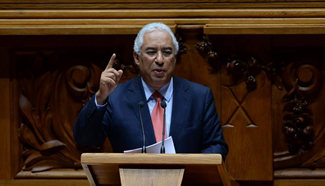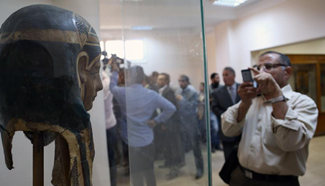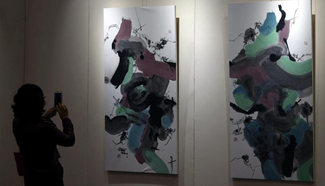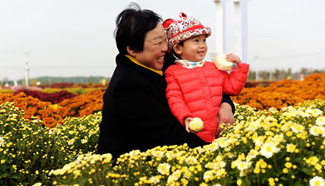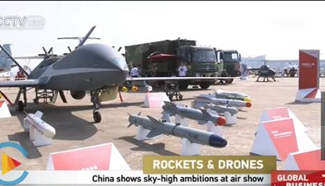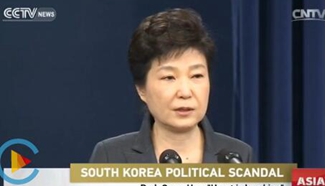Editor's note: The 2016 presidential election is seen by many as the most divisive and scandalous in the U.S. history. A team of Xinhua reporters recently toured two battleground states to get the firsthand accounts of what American voters really think less than two weeks before the Nov. 8 election. Here is the last of four in-depth reports they have produced.
by Xinhua Writers Zhu Lei, Qi Zijian, Li Changxiang
PETERSBURGH, the United States, Nov. 4 (Xinhua) -- An adaption of American novelist George R. R. Martin's epic fantasy novels, A Song of Ice and Fire, Game of Thrones is a popular TV series which chronicles the violent dynastic struggles among the realm's noble families for the Iron Throne.
Now, the two titles make perfect sense for a political allegory of the 2016 U.S. presidential campaign.
On one hand, the Game of Thrones between Hillary Clinton and Donald Trump is like a raging wildfire, with dramatic flames hard to be put out; on the other hand, policy issues the presidential election should be focusing on are like a deep iceberg, with few chances to see the light.
That's why so many voters in the battleground states of Pennsylvania and Ohio are torn apart to choose from the two most disliked presidential candidates in American history -- Republican presidential nominee Trump and his Democratic rival Clinton.
Emotionally depressed by and fed up with this long and nastiest election season dominated by personal attacks, they could never tell what is the denouement of the game of power.
This year, "October Surprise" -- unpredictable development that has the firepower to alter the trajectory of the White House race -- has set a new record, though U.S. presidential campaigns are never short of the unpredictable.
On the first of the month, a bombshell report indicating Trump managed to lose 916 million U.S. dollars in 1995 in a business failure that could have allowed him to avoid paying federal income taxes for at least 18 years was not even close to a surprise.
Many have thought the disclosure of a 2005 lewd tape that featured Trump bragging about groping women was game-changing. Republicans have lined up to abandon the seemingly collapsing Trump Tower, while a parade of 11 women has come forward to publicly accuse him of sexual assaults.
Back then, even Wikileaks' release of thousands of hacked Clinton's campaign chairman, exposing her campaign machination and her family charitable foundation, could not save Trump from sliding in the polls.
Then came a renewed FBI emails investigation. FBI Director James Comey's announcement that the bureau would investigate more emails potentially related to Clinton's private server came as the most surprising of the October Surprise.
Worrying the news could swing the election to Trump, the Clinton camp and her fellow Democrats launched a ferocious attack on Comey whom they have praised as a model of justice when he recommended no criminal charges in July for her handling of classified information as secretary of state.
The about-face on the Trump side came equally fast. The New York real estate tycoon, who has cited the FBI and the Department of Justice's handling of the email scandal to claim a "rigged" election against him, praised the FBI for having the "courage" to "right the horrible mistake that they made."
With the unprecedented negativity and partisanship, the October surprises added more fuels to the roller coaster election that has tested political norms and the stomach of voters.
A considerate portion of voters in the two battleground states of Pennsylvania and Ohio complained about the money in politics and government corruption.
They were anxious that the country is overrun by Washington insiders and thus needs to "clean house."
Indeed, Clinton and Trump are running their campaign bankrolled by big donors, though both have pledged to curtail the influence of money in politics.
Two dozen billionaires have spent 88 million U.S. dollars on the 2016 presidential campaign, and Clinton has been the largest beneficiary of the infusion of cash, drawing in a total of 70 million dollars from 19 of them to her top allied super PAC, according to the latest Federal Election Commission disclosure.
The money in politics and corruption in the voting system are eroding voters' faith in the two-party system, which is increasingly separating people into the opposite sides of the political spectrum.
As the 2016 race pitting two of the most polarizing figures in U.S. public life aggravates the deep polarization in recent decades, voters are fearing for the animosity between the two camps in the wake of the election.
With the Election Day only four days to go, it's still hard for voters to tell what will come next in the game of power.

